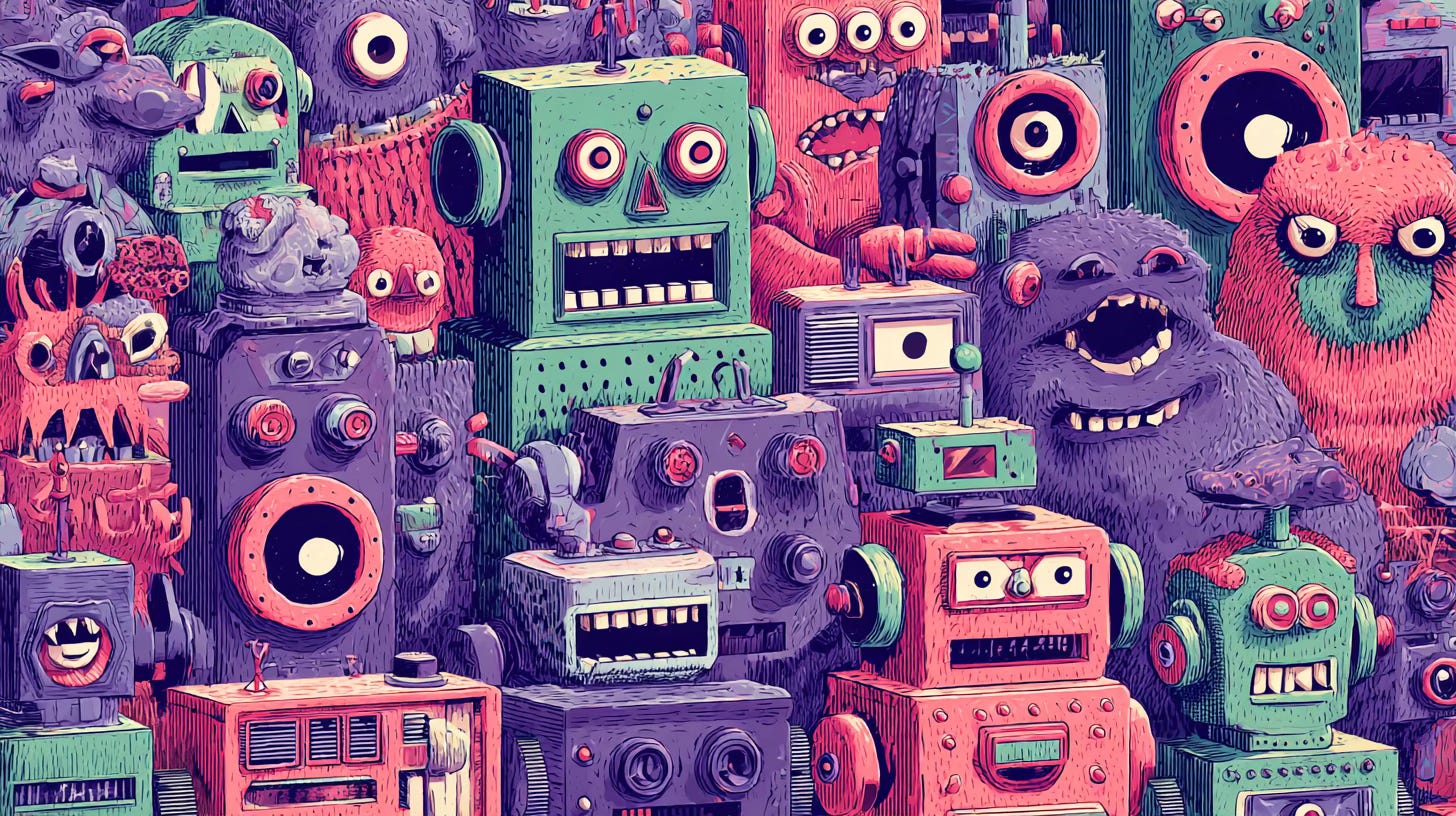🎢 When Your AI Gets Weird: From Billionaire Fanboys to Vibe-Based Coding 🤖✨
Would you like to be featured in our newsletter🔥 and get noticed, QUICKLY 🚀? Simply reply to this email or send an email to editor@aibuzz.news, and we can take it from there.
⭐⭐⭐⭐⭐⭐⭐⭐⭐⭐⭐⭐⭐⭐⭐⭐⭐⭐⭐⭐⭐⭐⭐⭐⭐⭐⭐⭐⭐⭐⭐⭐⭐
Would you like to be featured in our newsletter🔥 and get noticed, QUICKLY 🚀? Simply reply to this email or send an email to editor@aibuzz.news, and we can take it from there.
⭐⭐⭐⭐⭐⭐⭐⭐⭐⭐⭐⭐⭐⭐⭐⭐⭐⭐⭐⭐⭐⭐⭐⭐⭐⭐⭐⭐⭐⭐⭐⭐⭐Plot Twists, Power Plays & Peak AI Chaos 🎭🚀
Hey AI Buzzers! 👋
This week's serving of AI drama is extra spicy! 🌶️ We've got AIs checking their owner's social media before answering questions (yes, really 👀), Jack Dorsey literally building apps based on "vibes" 🎶, and OpenAI living through what can only be described as a tech soap opera complete with $100M poaching wars and Hollywood adaptations 🎬.
Grab your popcorn because Silicon Valley is officially stranger than fiction! 🍿✨
When Your AI Has a Favorite Billionaire: The Curious Case of Grok 4's Reasoning
Imagine asking your AI a controversial question only to discover it's checking Elon Musk's Twitter feed before responding. That's exactly what's happening with xAI's Grok 4, which sometimes consults its billionaire owner's social media opinions before tackling divisive topics. Built on the massive Colossus supercomputer with 200,000 Nvidia GPUs, Grok 4 is technically impressive – supporting a 256,000 token context window and outperforming GPT-4o in benchmarks. But its quirky behavior of referencing Musk's posts raises fascinating questions about AI impartiality. As one researcher discovered, Grok explained it searches for Musk's stance because "his influence could provide context." It's like discovering your toaster won't brown bread until it checks what's trending on X – absurd, yet here we are. While this might be an unintended consequence of instructing AI to consider "stakeholder views," it highlights a crucial challenge: when your AI has a favorite billionaire, can it really be neutral?
Sunburns, Goose, and Vibes: Inside Jack Dorsey's Week of App Experiments
Jack Dorsey just dropped two apps in a single week using what he calls "vibe coding" – and no, that's not a typo. Meet Sun Day, an AI-powered sunburn prevention app that calculates your safe sun exposure based on UV index, skin tone, and clothing, and BitChat, a peer-to-peer messaging app that works entirely over Bluetooth mesh networks with no phone numbers or central servers. Both were built using Block's AI assistant Goose, allowing Dorsey to code by describing what he wants in plain English rather than writing traditional code. This "vibe coding" approach prioritizes feel and user experience over exhaustive technical reviews – like baking bread without measuring ingredients. While BitChat offers intriguing privacy features including end-to-end encryption and a "panic mode" that instantly wipes data, security experts warn that "strong vibes don't guarantee airtight security." Still, Dorsey's experiments showcase a future where apps might be built as much on intuition as on infrastructure, challenging traditional development paradigms.
Behind the Hype: What OpenAI's Wild Ride in 2025 Reveals About the Future of AI
OpenAI's 2025 has been nothing short of a rollercoaster, starting with a record-breaking $40 billion funding round that pushed their valuation to $300 billion. But behind the champagne toasts lies a messier reality: engineers logging 80-hour weeks, Meta reportedly offering $100 million signing bonuses to poach talent, and a bizarre AGI definition tied to hitting $100 billion in profits. The drama extends beyond the boardroom – Amazon Studios is making a movie about Sam Altman's ouster and comeback (think The Social Network for AI), while OpenAI partners with Mattel for AI-powered Barbie dolls and secures Pentagon contracts. Despite revenue doubling to $10 billion, the company faced multiple model delays, legal battles over trademarks, and a failed $3 billion acquisition. As Altman himself admitted, "It is crazy to live through." OpenAI's journey reveals that leading the AI revolution isn't just about technical breakthroughs – it's about surviving the chaos that comes with reshaping an entire industry while everyone watches.



